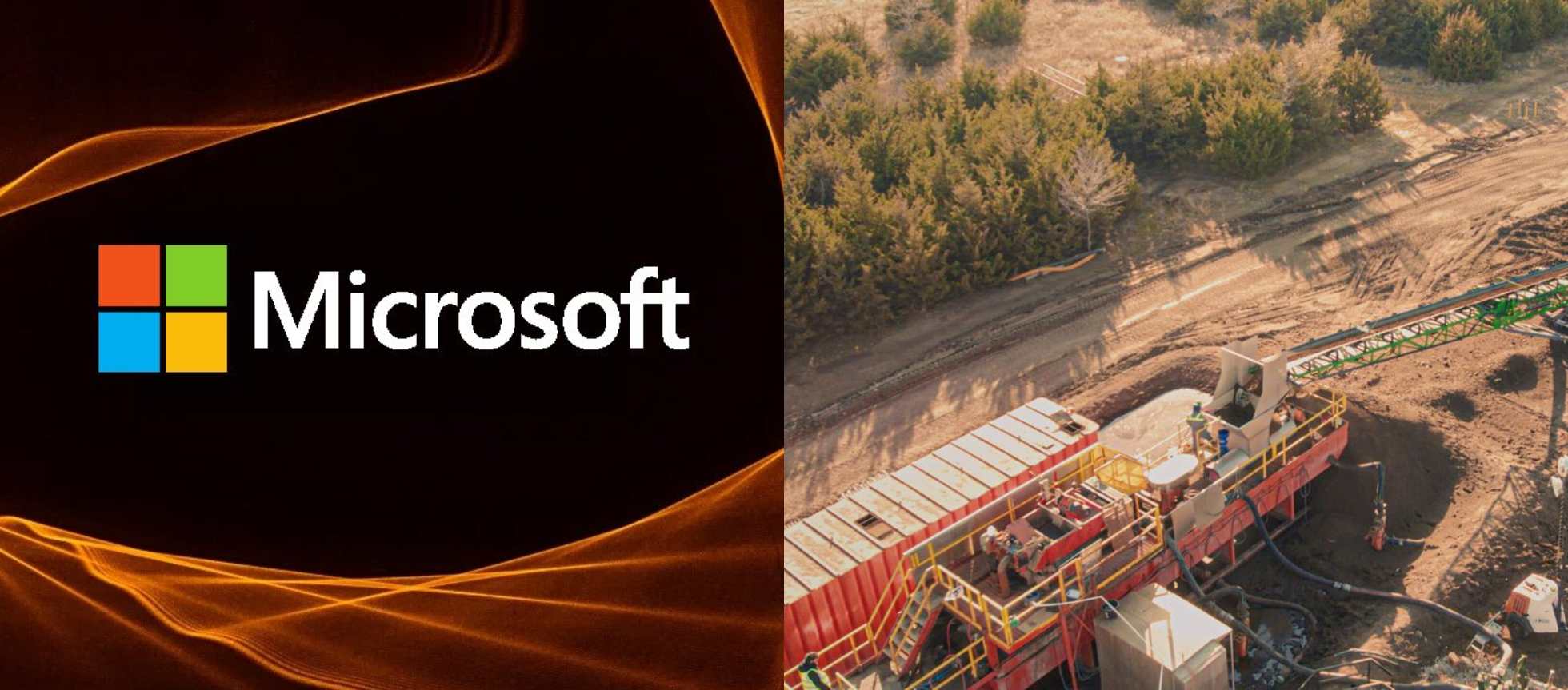Microsoft has struck an unusual deal that sounds more like science fiction than corporate strategy. The tech giant is spending over a billion dollars to bury massive amounts of human and agricultural waste thousands of feet underground. The partnership with Vaulted Deep will sequester 4.9 million metric tons of carbon by injecting a slurry of biosolids, manure, and food scraps into deep geological formations.
This unconventional approach addresses a growing problem for Microsoft and other tech companies racing to build AI empires. As artificial intelligence systems demand ever-increasing amounts of computational power, their carbon footprints are ballooning. Microsoft’s solution? Turn waste disposal into carbon removal.
“Generally, what happens to these wastes today is they go to a landfill, get dumped in a waterway, or they’re just spread on land,” explained Vaulted Deep CEO Julia Reichelstein. “In all of those cases, they’re decomposing into CO2 and methane. That’s contributing to climate change. And then oftentimes, especially when it’s spread on land, all those pathogens are going directly into people’s groundwater.”
The process works by mixing organic waste into what the company describes as a “sludgy cocktail” before pumping it 5,000 feet underground into sealed geological formations. Instead of decomposing on the surface and releasing greenhouse gases, the waste remains trapped below ground indefinitely. For every ton of carbon locked away, Microsoft receives carbon removal credits that theoretically offset emissions from its data centers and AI operations.
With carbon removal costs estimated at around $350 per ton, industry observers suggest Microsoft’s deal could be worth more than $1.7 billion, though neither company has confirmed the exact figure. The investment represents one of the largest carbon removal purchases to date, signaling how seriously tech companies are taking their environmental impact as AI adoption accelerates.
Microsoft’s Brian Marrs characterized Vaulted Deep as “a waste management company that’s become a carbon dioxide removal company,” noting that the dual benefits of waste management and carbon sequestration made the partnership attractive. The approach differs from traditional carbon offset programs by actually removing waste that would otherwise contribute to pollution.
The technology isn’t entirely theoretical—similar waste injection processes are already operational in cities like Los Angeles and Derby, Kansas. With Microsoft’s substantial backing, Vaulted Deep plans to dramatically scale up operations to handle millions of tons of waste annually.
“Vaulted offers a dual solution,” Reichelstein added. “It meets urgent waste management needs and drives measurable climate and public health improvements.”
This deal represents just one piece of Microsoft’s broader carbon strategy. The company has committed to purchasing 59 million tons of carbon removal across various projects in 2025 alone, making it one of the most aggressive corporate buyers in the emerging carbon removal market.
The partnership highlights the complex environmental calculations tech companies face as AI continues its rapid expansion. Training large language models and running AI applications requires enormous amounts of electricity, often from data centers that operate around the clock. While companies like Microsoft have committed to renewable energy goals, the sheer scale of AI’s power demands has made carbon removal increasingly attractive as a complementary strategy.
The waste-to-carbon-removal approach also addresses environmental justice concerns about where waste ends up. Rather than concentrating organic waste in landfills that disproportionately affect low-income communities, the underground injection method promises to isolate waste from groundwater and surface environments entirely.
Critics might question whether burying the problem literally counts as solving it, but proponents argue that preventing decomposition-related emissions while simultaneously managing waste streams creates genuine environmental benefits. As AI continues reshaping the global economy, Microsoft’s billion-dollar bet on underground waste disposal may represent an early glimpse of how tech companies will balance innovation with environmental responsibility.
Whether pumping waste underground becomes a widespread practice remains to be seen, but Microsoft’s commitment suggests the company views it as a viable path toward its carbon neutrality goals.


